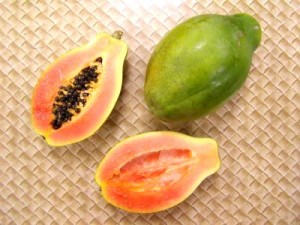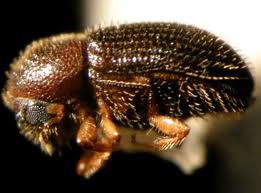OPINION: Don’t Snub GMO
Everyone loves a selfless hero.
From Oscar Schindler sheltering Jews during the holocaust, to Captain “Sully” Sullenberger landing an Airbus A320 in the Hudson River, people who save lives sometimes get rewarded with appreciative nods in popular culture.
But more often, amid a sea of YouTube videos, best-dressed lists, and celebrity hookups, we fail to notice some amazing individuals. In a time when “changing the world” has become cliché, we sometimes ignore people who actually have made a difference, sometimes on an epic scale.
On that note, meet Norman Borlaug.
To be precise, the late Nobel laureate Norman Borlaug. An agricultural researcher, Borlaug’s high yielding crop strains have been credited with saving over one billion people from starvation.
As recently as the late 1960s, it was predicted that population growth would outstrip the world food supply, leading hundreds of millions to starve in areas like India and Pakistan.
Borlaug, who used disease-resistant genes to breed durable varieties of wheat, began planting his seedlings in the region while India and Pakistan were at war over Kashmir, often working at night amid flashes of gunfire. Thanks to his efforts, both countries would become self-sufficient in grain production in just a few years.
Work in genetically modified organisms (GMO) for food production has continued well past Borlaug’s early efforts, and has spread to Rice, Corn, Canola, and Sugar crops, in some cases representing more than 90% of harvests. Although it is thought to curb deforestation by making more productive use of farmland, the use of GMO technology is a controversial topic.
Here in Hawaii, it has put two of our largest agricultural crops on very different paths.
Our papaya industry, which was devastated in the late 1990s and early 2000s by an infestation of the ringspot virus, has largely embraced the technology. Using genetically modified Rainbow papayas, Big Island farmers are recovering, taking back market share lost to Southeast Asia during the spread of the virus.
Although GMO papayas were initially banned from export to critical markets like Japan, the barriers have begun to fall. Costco of Japan began selling Big Island GMO papayas in December of 2011, and the government there has ended the moratorium on imports, requiring only that the fruit be properly labeled “GMO.” Although there is high demand for organic, non-GMO papayas, consumers have largely accepted the genetically modified varieties and most of the papayas grown in Hawaii County are now “GMO.”
A polar opposite approach to GMO technology has been taken by the Kona Coffee industry, which pushed the Hawaii County Council to ban the growing of genetically modified beans on the Big Island in 2008. At the time, the industry had little choice but to reject GMO coffee, as its use would have risked derailing decades of work building the reputation of Kona Coffee as a brand. Beans developed using GMO technology can’t be classified as “specialty coffee,” and would likely fetch a lower market price. GMO coffee is also banned from export to key markets like Japan.
While consumer attitudes toward GMO products are still evolving, Big Island coffee growers are now facing a threat to their crops that didn’t exist when the GMO ban was introduced. Infestations of the Coffee Berry Borer beetle were first discovered in Kona in 2010, and have now been confirmed in all areas of west Hawaii. Ka`u coffee farmers have also discovered the pest presence.
The beetle is known to evolve resistance to spray treatments, and seems indifferent to altitude change here in Hawaii. With the potential to devastate crops, the industry is racing to develop measures that will limit its impact.
While the use of special fungus varieties can help to kill off populations, eradicating the creature completely seems an unlikely outcome. A warming planet may also end up working against farmers. A recent study by the International Centre of Insect Physiology and Ecology found that rising temperatures are serving to boost beetle populations.
Norman Borlaug introduced his cross-bred wheat varieties into Asia to respond to the needs of a changing world. His experiment aimed at curbing hunger was an incredible success, and he often found resistance to agricultural technology by first-world celebrities and political elites amusing. It’s certainly ironic that some of GMO’s most vocal critics are themselves a bit modified (whether by Botox or Silicon).
Also interesting is the selective nature of the buying public’s disdain toward modified crops. Often the same people turning their nose up at GMO coffee can be found sipping a soda sweetened with modified corn, or munching on French fries cooked in oil pressed from GMO canola seeds.

Consumers may reject GMO coffee, but some seem to have no problem with the GMO corn syrup sweetening their soda. Image from Stanford University.
How consumers feel about genetically-modified coffee is something the industry has no control over. For now, a negative attitude toward GMO beans (for however long it may last) means our coffee industry must avoid the technology.
But that doesn’t mean research into pest-resistant strains shouldn’t move forward. Both the industry and our government should continue to do everything they can to provide researchers with the funding and facilities necessary to develop agricultural products that can withstand the conditions of an ever-changing environment.
As with the papaya industry, coffee growers may one day have to embrace GMO out of necessity.











